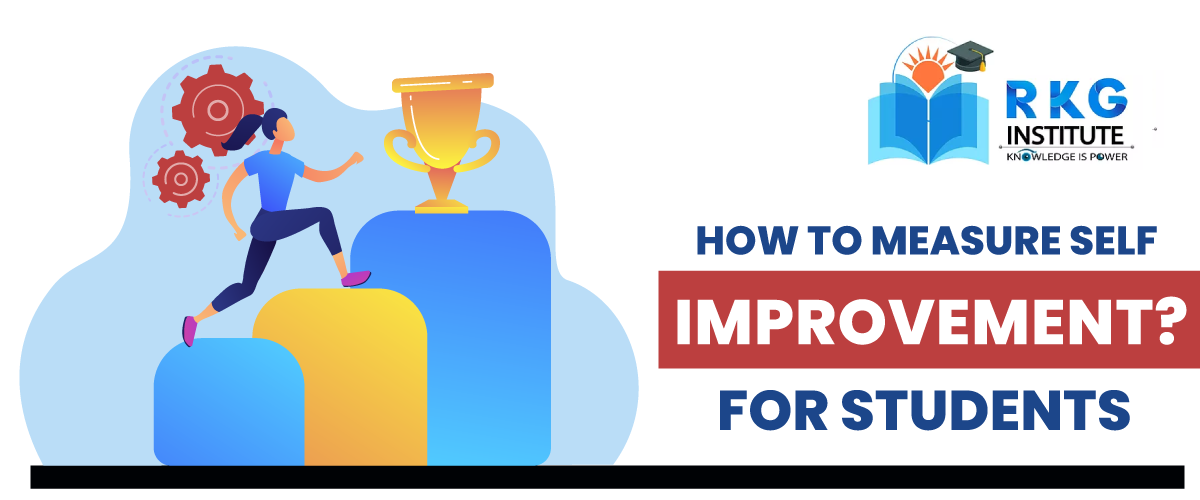Students are constantly reminded to work hard and improve their skills every day. A major chunk of the student life goes in improving yourself – in studies, sports, hobbies and other activities. While most of the students adhere to the guidelines by regularly working towards improving themselves, many of them aren’t even aware if they are improving or not. Specially, in the absence of a teacher or a guide, it becomes really difficult to judge and measure your progress in your respective field.

Measuring your improvement by yourself is indeed a tedious task to do – you need to be unbiased and honest to yourself. This requires a lot of patience and analytical insights of self. However, once done, it proves to be extremely useful for you as you will get the purest form of remarks and the status of your learning, all unbiased. This also proves to be a great motivator.
This article will list out some essentials and strategies that will help a student to measure his/her academic and non-academic improvement.

- Track Your Performance
One of the major common mistakes that students make in the journey of improvement is that they do not track their performance over time.
Tracking your performance involves maintaining a record of the results of your performances as you progress. This gives you a glimpse of the areas you are excelling in and the areas that need further improvement.
- It is advised that you maintain a diary of records of your performances. For example, let’s assume that you want to score 95+ percent in the coming exams. Your diary of records must mention the results of all the tests and examinations that you have appeared in, of all the subjects. This will help you analyse your strong and weak subjects, and how your performance has been behaving with time. It will also help you analyse whether or not your hard work results out as good output.
- Further, you are required to analyse the reasons for your performances. Say, for instance, you may find that whenever you had given your tests without revision, your marks were low. This will help you in finding out the loopholes of your preparation.

- 2. Grab all Opportunities to Test Yourself
The best way to check whether you have progressed or not is to test yourself. During this journey to self-improvement, grab all the possible opportunities that you can use to perform and test.
- Never defer the test to perfection. Do not think of giving the tests and performances after you have perfectly improved. Testing is a catalyst to improvement. Don’t get scared of the results.
- Give your tests seriously. Do not take them lightly. Every test you appear in must be the best performance of yourself at that particular time.
- Say for example, that you are working to improve your speaking and communication skills. Don’t let go of any opportunity such as – speech and debates, talking to strangers, etc. Don’t wait for the perfect time.
- The more you test yourself, the better you become.

- 3. Ask for Feedback
It is true that feedbacks aren’t always the true picture – they may be biased or illogical sometimes. However, asking for feedbacks from many people will help you get a general idea of where you are heading to. To accept it or not, is your choice.
- Whenever you test yourself, ask from feedback from the concerned people. For example, if it is in studies, ask your teacher. If it is about speaking skills, ask from anyone who listens to you.
- Over a period of time you may notice a change in the feedbacks of people. This may be considered as a sign of improvement.
- However, it is not advised to rely completely on feedbacks to measure your improvement.

- 4. Compare Yourself to Yourself
This is the most effective and important part of self-evaluation. Compare who you are to who you were. Your record diary may help you here. Talk to yourself honestly and figure out the progresses made, if any. Take out half-an-hour every day to analyse such things alone.
This process will not only help you track your improvement but also help you to know yourself better.
All the best!


